*Please sign and share the link to our EPC petition (Petition Link)
By Gordon FriesenPresident, Euthanasia Prevention Coalition
EPC has an online petition, we have post-cards to be sent to members of parliment and we have a traditional paper petition demanding a complete review of Canada's euthanasia law. Contact EPC at: info@epcc.ca to order post-cards or paper petitions.
In coming weeks and months, the Euthanasia Prevention Coalition and the Delta Hospice Society will be calling on government's to undertake a complete, and long-promised review of euthanasia (MAiD) in Canada.
It is our observation that events have unfolded in a completely unexpected and alarming fashion; that current policy has little to do with its originally stated intent; that such policy is in fact leading us on a horrific course that no one consciously chose (or very few) but which is now evolving under its own anti-human economic logic and impetus.
Even we, in the organized resistance to euthanasia, have been taken unawares, while our rhetoric has been roughly overtaken by the facts. To take one key example, it has always been a priority to champion fair treatment of the most vulnerable, in terms of access to needed care and services. For we all immediately understand that legal euthanasia threatens the safety of specific lives. What we did not understand is just how many lives that would be.
Very simply put, the "most vulnerable" narrative assumes that disputed benefits actually exist; that people are generally able to access appropriate services; that only certain groups (defined perhaps by economic, racial, gender, or ability criteria) are not. However, as the situation now exists in Canada, real health care --meaning truly life-affirming care, free of the pressure to accept euthanasia-- is no longer available (in so far as that availability depends upon the State).
Real, good and decent doctors and nurses do exist, of course! And they are clearly among the most influential actors in our Coalition. However, our chances of being treated properly as patients should not be dependant upon the personal moral compass of individual professionals who are now forced to operate as dissidents within a hostile system.
That is not at all how things were intended to be. We have always been taught to expect proper medical care as a right of citizenship. Our universal Canadian system was established some sixty years ago with the precise goal of making such care available to all.
Shockingly, the true calamity we are now experiencing involves nothing less than the cynical replacement of that time-honoured medical ideal, with a radical, euthanasia-based, veterinary-style system of population management.
In this scheme, advanced medical treatment will indeed be provided for those briefly incapacitated persons who may easily be restored to full productive status. But a radically different path is marked out for everyone else, which is to say: for anyone at all whose physical or mental status --for whatever reason-- might cause their expected economic contribution to fall below the cost of their upkeep. In these cases, illness, disability, and even simple aging itself, are now to be collapsed into the smallest social dimension possible, by actively steering all such individuals towards the newly discovered medical "treatment" of euthanasia.
Indeed, the only easy way to escape this trap requires personal resources large enough to privately make up the difference. For our ruling elites there is obviously no difficulty. Simply jump in the plane, and off they go, to state-of-the-art facilities provided by dynamic extra-national organizations dedicated to the satisfaction of every client whim (medical or otherwise) in settings of luxury.
Back in Canada, however, few individuals possess such options. The available earnings of the entire working and middle classes are already fully committed to the spending policies of which medical care is by far the greatest component. For the individual taxpayer, that money cannot be spent twice. No personal budgetary room remains for typical Canadians to pay, out of pocket, for real medical care.
To repeat the essential: service deprivation is now the norm, not the exception. To portray this as a "most vulnerable" issue (wholly, or even primarily) would require the redefinition of "most vulnerable" to include any person whose speedy recovery cannot guarantee prompt return on investment. And in the normal experience of accident and aging (while excluding our rulers) this is a category which includes the entire population.
In short, the problem of euthanasia does not affect only certain persons. It affects every person at certain seasons in their lives. Our common problem is the deliberate promotion of euthanasia by the administrative State. It is the shameless presentation of medical homicide as a legitimate and sufficient solution for any sort of problem. Nor have we seen the worst. We may now expect decision-makers to actually lower care standards on purpose. For if suffering is assumed to have a cure --in euthanasia-- then suffering can no longer be allowed to impede rationalization.
In retrospect, I think it is fair to say that very few people could have suspected that a supposedly limited access to voluntary euthanasia might ever devolve into the scale of industrial destruction, of human life, to which we are now witness. Quite naturally, many people have come to question the "why" and the "how" of such a calamitous outcome.
And that is why we are calling for a complete review of Canada's euthanasia policy.
*Please sign and share the link to our EPC petition (Petition Link)
We demand a full review, as originally promised in law but never delivered: an open and unfiltered scrutiny of current practice, accompanied at each stage by the severe questioning of past decisions made. Everything must be on the table.
We further believe that serious changes must result. For we --by a large majority-- want real medical care.
Link to our letter to federal and provincial parliaments (Link to letter).














.jpg)



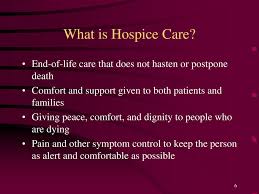
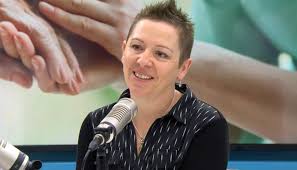
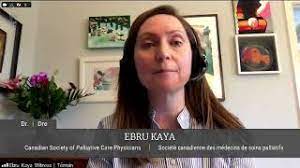
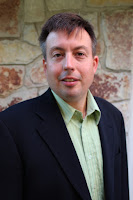
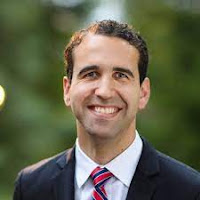
.png)